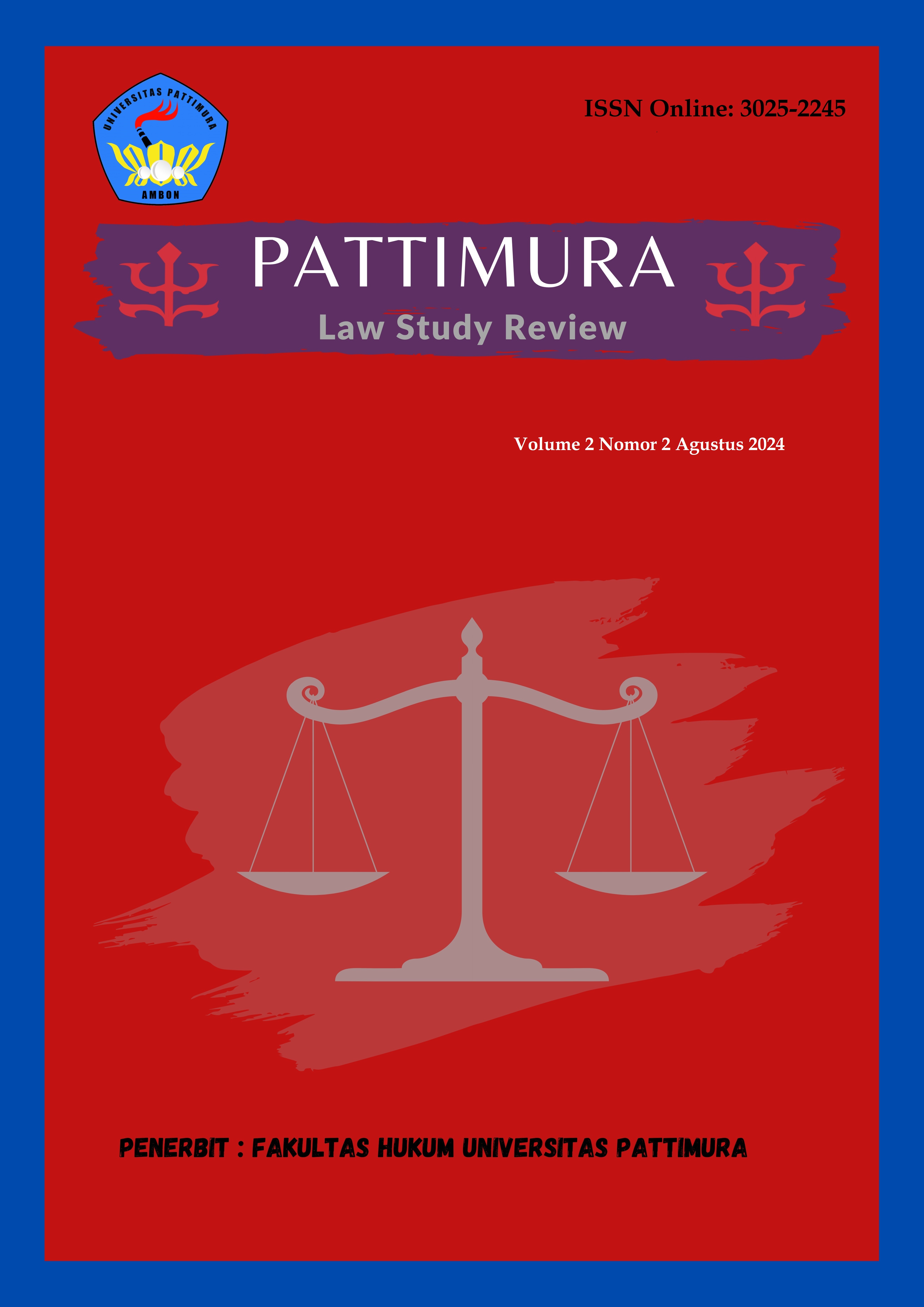Kedudukan Bezitter Terhadap Objek Warisan
Abstract
Inheritance law is part of marriage law. This relationship occurs because inheritance law regulates how a person's property and wealth will be distributed to the heirs. The inheritance process will refer to the transfer of property from heirs to heirs. The law authorizes the heirs to own the right to inheritance. Inheritance that has no heirs will be under the control of the heritage hall, in the Indonesian Civil Code Material rights, namely, Bezit, Eigendom, and material rights over other people's property, will be exercised by Bezitter after that, where Bezitter who has good faith has the right to acquire ownership of the object. The possession of an inheritance by a Bezitter can occur if the heirs do not exist or are unable to perform their rights and obligations. This refers to the application of the principle of expiration, to study and discuss the right of bezitter to the object of inheritance and to discuss the legal consequences of the object of inheritance that is leased to other parties. The legal research method used in examining this problem is normative juridical, which is based on primary, secondary, and tertiary legal materials, and uses a statute approach and a conceptual approach. The result of this writing explains that Bezitter's position on the control of an inheritance according to Article 1185 can be done if, a Bezitter who has in good faith has managed and cared for an inheritance for a long period of time (verjaring) is allowed to control an inheritance if the heirs are unable to exercise their rights and obligations. Legal protection can be done by implementing relevant laws and regulations as a preventive step in maintaining security and law enforcement.
Downloads
References
Jurnal
Gunarsa dkk, Kontrak Berjangka Komoditas Emas Seba Sebagai Instrumen Transaksi Derivatif dalam Kajian Hukum Ekonomi Syariah, Undang: Jurnal Hukum 2, no1 (2019): 95-117.
Parinussa dkk, "Pembagian Harta Waris Kepada Ahli Waris Dari Perkawinan Pertama Dan Kedua Ditinjau Dari Kitab Undang-Undang Hukum Perdata." TATOHI: Jurnal Ilmu Hukum 1, no. 4 (2021): 356-363.
Sameth, Julkipli, Merry Tjoanda, and Sabri Fataruba. "Sewa Menyewa Tanah Warisan Tanpa Izin Ahli Waris Yang Lain." PATTIMURA Law Study Review 1.1 (2023): 45-50.
Buku
Anisitus Amanat, Membagi Warisan: Berdasarkan Pasal – Pasal Hukum Perdata KUH Perdata, Raja Grafindo Persada, Jakarta, 2000.
Idris Ramulyo, Perbandingan Hukum Kewarisan Islam dengan Hukum Kewarisan Perdata, Sinar Grafika, Jakarta, 2010.
I Ketut Oka Setiawan, Hukum Perdata Mengenai Perikatan, FH Utama, Jakarta, 2016.
Lukman Santoso AZ, Buku Bahan Ajar Perikatan, Jakarta, 2017.
Muhammad Siddiq Armia, Penentuan Metode & Pendekatan Penelitian Hukum, Lembaga Kajian Konstitusi Indonesia (LKKI), Banda Aceh, 2022.
R. M. Suryodiningrat, Azas – azas Hukum Perikatan, Tarsito, Bandung, 1985.
Ronald Saija dkk, Buku Ajar Hukum Perdata, CV BUDI UTAMA, Cet. 3, Yogyakarta, 2016.
Surini. A. Syarif, Intisari Hukum Benda Menurut KUH PERDATA, Ghalia Indonesia, Jakarta, 1984, hal. 48
Subekti, Aneka Perjanjian, Alumni, Bandung, 1975, hal. 48.
Tinuk Dwi Cahyani, Hukum Perkawinan, Universitas Muhammadiyah, Malang, 2020.
Titik. Triwulan. Tutik, Pengantar Hukum Perdata di Indonesia, Katalog dalam terbitan, Jakarta, 2006.
Lain – lain
Dimas Hutomi. Siapa yang Tanda Tangan jika Penerima Kuasa Lebih dari Seorang?.
Copyright (c) 2024 Elis Ruff, Merry Tjoanda, Novyta Uktolseja (Author)

This work is licensed under a Creative Commons Attribution-NonCommercial 4.0 International License.
Authors who publish their manuscripts in this Journal agree to the following conditions:
- The copyright in each article belongs to the author, as well as the right to patent.
- Authors are able to enter into separate, additional contractual arrangements for the non-exclusive distribution of the journal's published version of the work (e.g., post it to an institutional repository or publish it in a book), with an acknowledgment of its initial publication in this journal.
- Authors are permitted and encouraged to post their work online (e.g., in institutional repositories or on their website) prior to and during the submission process, as it can lead to productive exchanges, as well as earlier and greater citation of published work.
- Authors have the right to self-archiving of the article (Author Self-Archiving Policy)













